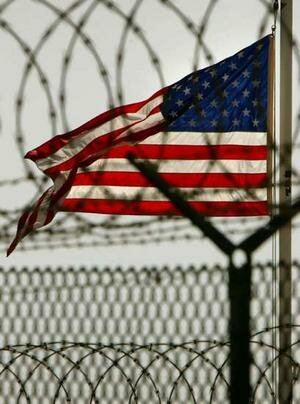|
Article from: AAP
 THE lawyer for terrorist suspect David Hicks has angrily rejected claims by Attorney-General Philip Ruddock that his client will plead guilty as part of a plea bargain. THE lawyer for terrorist suspect David Hicks has angrily rejected claims by Attorney-General Philip Ruddock that his client will plead guilty as part of a plea bargain.
Mr Ruddock said the new military commissions ratified in the US yesterday will allow for a plea bargain which would see Hicks return home, it was reported today.
But Major Michael Mori - the US military lawyer assigned to Hicks's case - says nothing could be further from the truth.
"The first I heard about it was when some reporter called me and asked me if I'd seen the story in The Age," Major Mori told ABC radio.
Hicks had previously pleaded not guilty to charges of conspiracy, attempted murder and aiding the enemy.
But the charges were dropped following a US Supreme Court ruling in June which made the military tribunals set up to try Hicks and other Guantanamo Bay inmates illegal.
Major Mori said Mr Ruddock made the same claim two years ago.
"It sounds to me again like this minister is trying to mislead the public into thinking David violated some crime when he knows David didn't violate Australian law or international law."
It was impossible, Major Mori said, for Hicks to be considering a plea bargain when he did not even know what charges he would face under the new commissions.
"We're going to fight his case and we will fight it tomorrow and we will fight in the next month ... I hope David doesn't break down and I don't see any reason why he would at this point."
Hicks is in solitary confinement at the US high security prison at Guantanamo Bay in Cuba, where he has been for about five years.
"I'm not sure why they're leaving David there when they could easily bring David home tomorrow," Major Mori said.
"He has done five years' hard time in Guantanamo and that seems to be a lot ... for someone who never violated Australian law and if they're worried about him they can put a control order on him."
Victorian man Jack Thomas was the first Australian to have a control order placed on him. He is now challenging that order.
It requires Mr Thomas to observe a midnight-5am curfew, limits his use of telecommunications, prevents him contacting terrorist figures, including Osama bin Laden, and requires him to report regularly to police.
Major Mori said the only outcome of placing a control order on Hicks would be bored federal police officers.
"They might have some bored Australian Federal Police after a month but if they have concerns they can do that."
- David Hicks Case Information
|


 THE lawyer for terrorist suspect David Hicks has angrily rejected claims by Attorney-General Philip Ruddock that his client will plead guilty as part of a plea bargain.
THE lawyer for terrorist suspect David Hicks has angrily rejected claims by Attorney-General Philip Ruddock that his client will plead guilty as part of a plea bargain.


